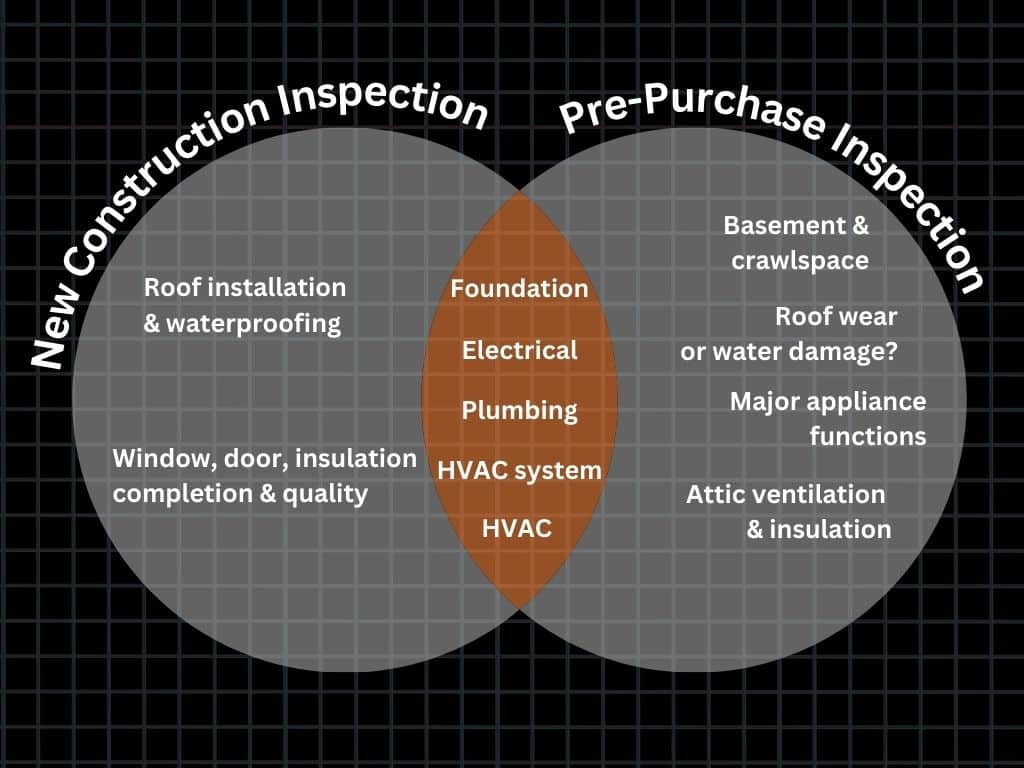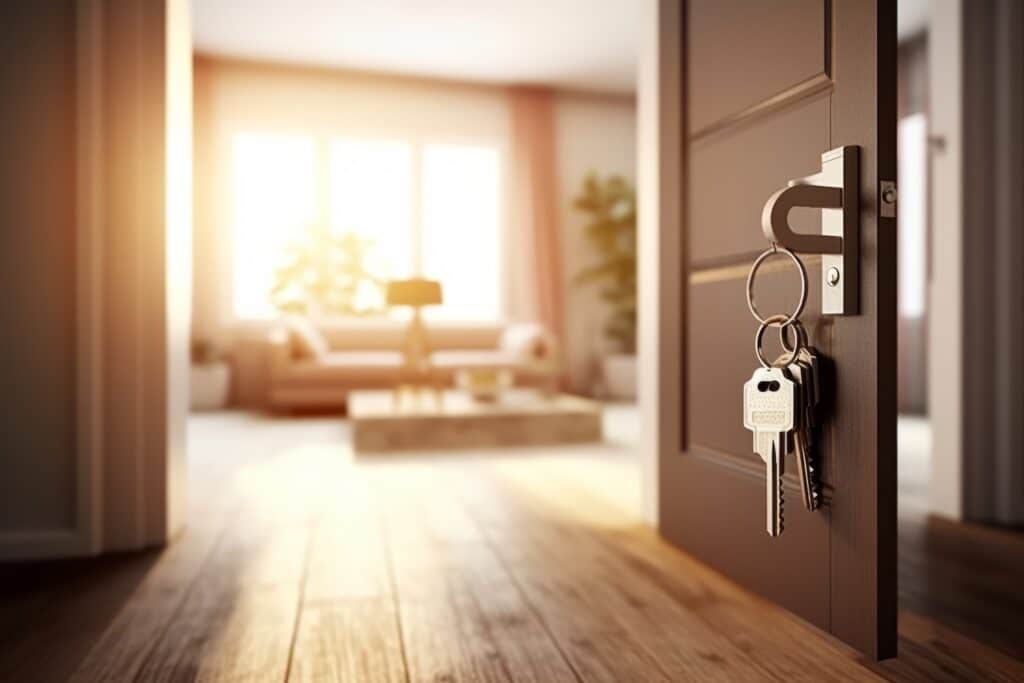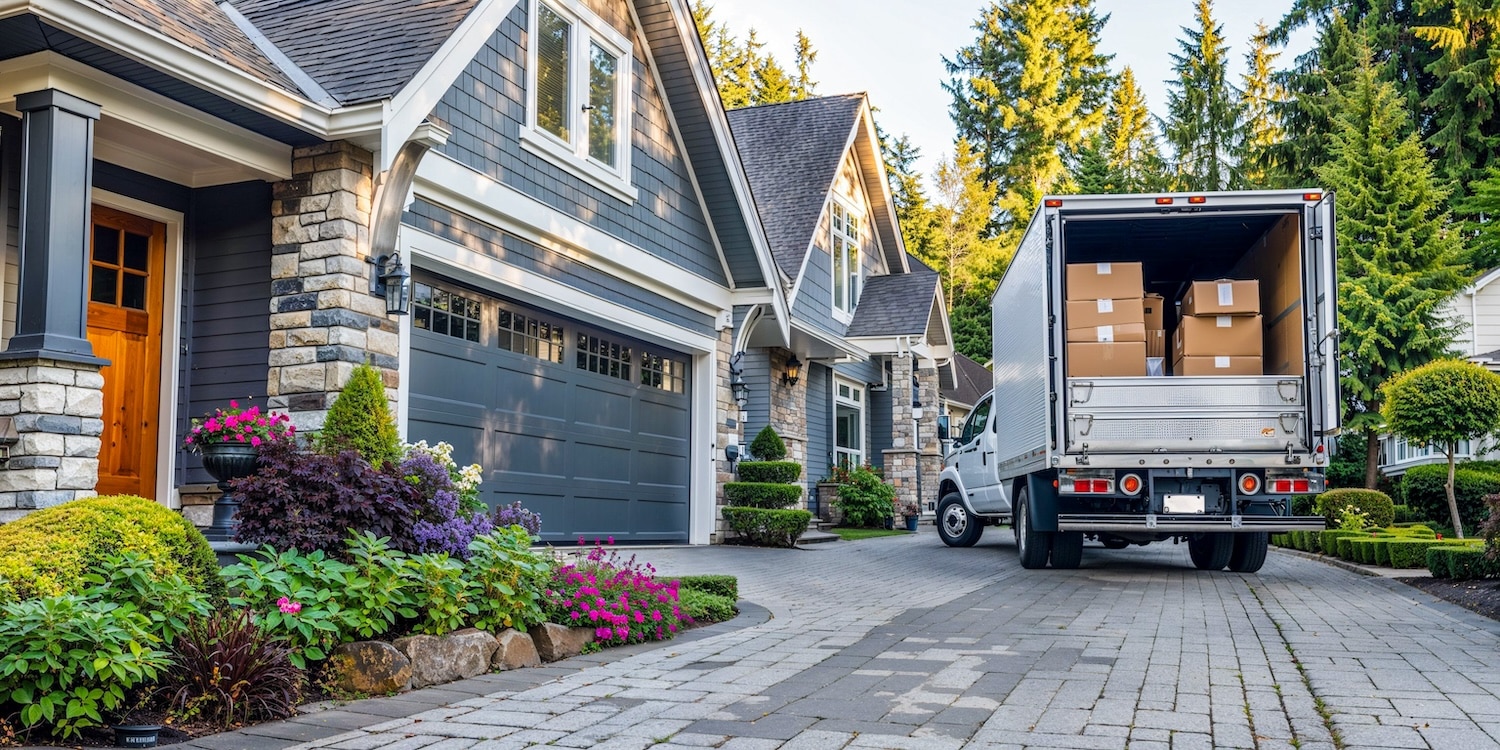Moving into a new construction home is a big, exciting step, and the last thing you want is unwanted surprises. That’s why it’s smart to get two key inspections done before you settle in – a pre-drywall inspection and a final pre-closing inspection. They’re your best shot at catching potential issues that could cost you big down the line.
In this article, we’ll break down everything you need to know. You’ll learn why both inspections matter, what they cover, and how they work together to keep your new home safe and sound. Let’s dive in so you can move with confidence!
Table of Contents
ToggleNew-Construction Inspections
Pre-Drywall Inspections
New construction inspections are all about making sure your brand-new home is built to last. Even with a fresh build, there can be issues lurking beneath the surface that might not be immediately visible. That is why a Pre-Drywall Inspection is your opportunity to catch those problems before they become costly fixes.
During a pre-drywall inspection, a qualified inspector will examine key areas of the home, such as:
-
- Foundation: Checking for cracks, settling, or other issues that could compromise the stability of your home
-
- Electrical systems: Ensuring wiring, outlets, and circuit breakers are properly installed.
-
- Plumbing: Inspecting pipes, fixtures, and drainage systems to confirm everything is working as it should
-
- HVAC systems: Verifying that heating, ventilation, and air conditioning systems are correctly installed and functioning efficiently
-
- Roofing: Looking for any signs of damage or poor installation that could lead to leaks or other issues down the road
You might wonder if this inspection is enough on its own. While it covers a lot, it’s only part of the picture. That’s where a pre-purchase inspection comes into play.

Final Pre-Closing Inspection
A final pre-closing inspection digs deeper into the overall condition of the home. This inspection provides a more comprehensive look at the property, focusing on elements that might not be covered during your pre-drywall inspection.
Key areas inspected during a final pre-closing inspection include:
-
- Roof and exterior: Checking for wear and tear, water damage, or any other issues that could affect the home’s integrity.
-
- Structural components: Examining the foundation, walls, and framing to ensure everything is solid and stable.
-
- Interior systems: Reviewing plumbing, electrical, and HVAC systems for signs of age, damage, or improper installation.
-
- Appliances: Testing major appliances to ensure they’re in good working order.
-
- Attic and insulation: Inspecting the attic space and insulation to verify proper ventilation and energy efficiency.
Even if your home is brand new, a final pre-closing inspection is still vital. It catches any issues the builder might have missed and gives you a complete picture of your home’s condition before you finalize the deal and documents current issues for you to address with your builder.
Do I Need Both Inspections?
You might be thinking, “Do I really need both?” The answer is usually yes, but there are exceptions.
Pre-drywall and final pre-closing inspections serve different purposes but work together to provide a full assessment of your home. This inspection ensures your home is being build according to it’s plans and addresses issues before they are covered up with building materials.
A final pre-closing inspection, on the other hand, takes a more comprehensive look at the overall condition of the home, identifying potential issues that could affect your living experience or require costly repairs.
For a brand-new home, if your pre-drywall inspection is thorough and addresses all potential concerns, you might feel confident enough to skip the final inspection. However, if you want complete peace of mind, or if you’re uncertain about the build quality, scheduling both is the best way to protect your investment.
Skipping either one could leave you vulnerable to hidden problems. For instance, a pre-drywall inspection might confirm that your home’s foundation is solid, but a final inspection could reveal hidden plumbing leaks, which could lead to expensive repair costs.

Other Pre-Move Maintenance to Consider
Before moving in, there are some simple tasks you can tackle yourself to ensure your new home is comfortable and safe!
-
- Test Smoke and Carbon Monoxide Detectors: Make sure all detectors are installed and functioning correctly. Replace the batteries if needed, and test each one to ensure they’re in working order.
-
- Examine Gutters and Downspouts: Clear out any debris from gutters and ensure downspouts direct water away from the foundation. This helps prevent water damage and foundation issues.
-
- Lubricate Doors: Use a light oil to lubricate door hinges and locks throughout the home. This prevents squeaks and ensures smooth operation.
-
- Change Locks: Consider changing the locks or rekeying them for added security and peace of mind.
When and How to Call a Professional
Timing is everything when it comes to inspections. Ideally, you should schedule your pre-drywall inspection before installation of any insulation or drywall in the home.
The final pre-closing inspection should happen as approximately 5-7 days before your final walkthrough with your builder. This gives you the chance to address any issues before closing.
Choosing the right inspection company is equally important. Look for someone with experience in the type of property you’re buying and who understands the local building codes and regulations. A reputable inspector will provide a detailed report and be available to answer any questions you might have about the findings.
Final Thoughts on Inspections Before Moving In
New construction inspections before moving into your new home is one of the best decisions you can make. They give you a comprehensive view of your home’s condition and help you avoid unexpected problems or repairs.
Taking the time now to invest in these inspections ensures that your new chapter begins on solid ground. Ready to ensure your new home is move-in ready? Schedule your inspections with Tier 1 Pro Inspections today in central Florida.

